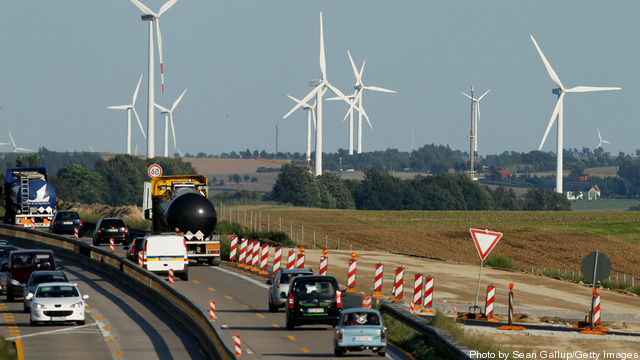
Voters aren’t the only ones frustrated by the swirl of misinformation surrounding energy; so are those in the industry who find themselves in a constant battle against the sound bite and the stereotype.
Rayola Dougher, senior economic advisor for the American Petroleum Institute, says it irks her that a lot of voters assume that anyone in the petroleum industry is anti-renewable.
“The truth is, in terms of just renewables from 2000 to 2010, one out every five dollars invested in non-hydrocarbon technology has been invested by oil and gas suppliers,” she said.
Patricia Stanton, senior vice president of policy and advocacy at Massachusetts-based Conservation Services Group, cites another kind of distortion. She finds it frustrating that energy efficiency companies must work so hard to prove they achieve energy savings. Such information – along with power production data – is required by government forecasters, policymakers and grid operators. But power plants, solar arrays and wind farms face a less rigorous accounting in proving how much energy they produce, according to Stanton.
“There are folks who question the ability to quantify how much you save. We can do that math in a pretty accurate way,” she said.
On a different front, former Colorado Governor Bill Ritter sees the cloud of misinformation descend when people say they oppose regulation or mandates for utilities – not realizing utilities are monopolies.
“When you can achieve a monopoly or near monopoly you are going to be regulated by the state. So to say, ‘We are opposed to mandates’ is like a parent saying they are opposed to giving their teenager a curfew,” said Ritter, who is now director of the Center for the New Energy Economy at Colorado State University.
With an industry overwhelmed by so much spin, misrepresentation and just plain misunderstanding, how can the voter trust information?
Read on to find examples of proposed solutions from Public Agenda, and to discover why there’s always something to hate in the energy sector.
Public Agenda says it tries to be an honest broker of information by using a framework called ‘choice work’ in creating its voter guides. The Manhattan-based research organization does not tell the voter what to think, but lays out the various options and explains the repercussions that will result from making any of the various choices.
For example, in “Energy: A Citizens’ Solutions Guide,” one of several voters guides by the nonpartisan organization, Public Agenda treads carefully in describing the much-trumpeted ‘jobs creation’ arguments: “People talk about ‘green jobs’ that will come from developing infrastructure for renewable energy, but a lot of jobs (some say more) can also be created from upping our domestic production of oil and natural gas-we’ll need people to build the pipelines and do the drilling. But again, these job creation strategies may contribute significantly to the deficit.”
The guide lists each of the major types of energy, how much we have, and notably what’s good and what’s bad about each.
For example, the guide points out that oil provides most of our transportation fuel, and we are becoming less dependent on foreign imports, but oil will run out someday and it causes environmental degradation.
On natural gas, the guide says that the U.S. has 4.1 percent of the world’s proven natural gas reserves and recently has increased production significantly because of fracking, but critics say the practice endangers water supply. Yet if we move away from natural gas, we would need to use either more coal or nuclear because it will be decades before we have enough renewable energy to make up the difference.
Coal is abundant and cheap, but highly polluting. Nuclear is clean, but we only hold four percent of the world’s known recoverable uranium, haven’t solved the nuclear waste disposal issue and our population is largely against its use.
Renewable energy is clean and abundant, but building the infrastructure can be expensive and it requires back-up generation because of its intermittency, says the guide.
When Hate Means You Got It Right
Although it works hard to be even-handed, Public Agenda still faces criticism for its portrayal, particularly by those at various extremes of the spectrum, a sign that the guide probably struck the right middle ground, said Allison Rizzolo, a co-author.
“There is always going to be choice that someone hates. That is the way we know our choice work is successful,” she said.
Ritter says the public will continue to be confused until Congress backs clear national energy policy – and it may take some drastic action before that happens.
“This is part of the problem for Americans – they haven’t had the kind of guidance the national government should give them: a sound energy policy that is linked to environmental, and I would even add, climate issues,” Ritter said. “Until somebody loses an election for voting a certain way on an energy bill or an EPA bill, the people in DC are not going to pay attention to their voters as much as they will pay attention to the people supporting their campaigns.”
